People in contact with the justice system
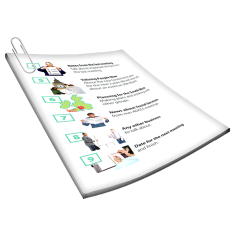
This information is about the mental health of people in contact with the criminal justice system.
It has information on

- Key points for people in contact with the criminal justice system

- Worries you might have when getting help for your mental health and what you can do

- Services and supports

The criminal justice system includes

- Police
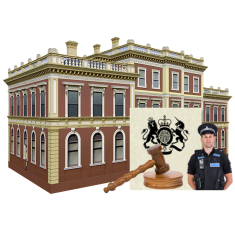
- The courts
The courts are where people decide if someone has broken the law.
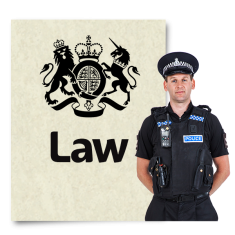
Laws are a set of rules that everyone must follow.
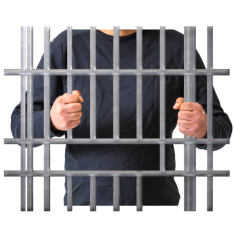
The criminal justice system also includes prisons.
Prisons are places where some people stay if they have broken the law.

If you communicate with the police or go to these places you are a person who has come into contact with the criminal justice system.
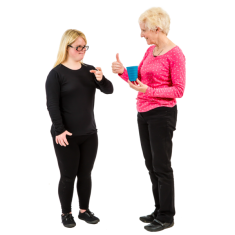
To communicate is how you understand and share your feelings or information.
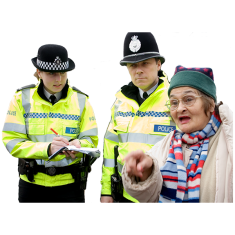
A person who has come into contact with the criminal justice system might not have committed a crime.
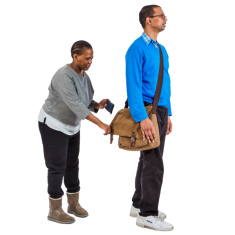
Committing a crime means the person has broken the law.

A person can come into contact with the criminal justice system if they are a
- Victim
or
- Witness
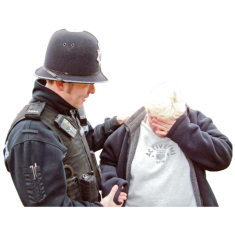
A victim is someone who has had something bad happen to them because of a crime.

A witness is someone who saw or knew someone was breaking the law.

People with intellectual disability and the criminal justice system
People with intellectual disability can find the criminal justice system confusing.

This can mean people with intellectual disability might
- Go to prison more than people who have committed the same crime

- Be ignored if they have been a victim of a crime

- Not have a support person with them

People with intellectual disability can have a support person with them when they are in contact with the criminal justice system.
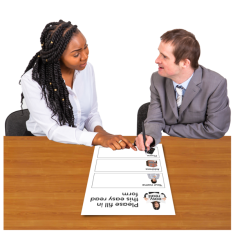
A support person supports people with intellectual disability to
- Have all their rights met
- Fully participate in the processes of the criminal justice system
Rights are rules about how everybody should be treated fairly.
A right is something everyone has.

After leaving prison
People might have a tough time after they leave prison.
When they leave prison people with intellectual disability might not

- Have the support they need
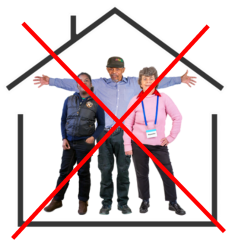
- Have a safe place to live
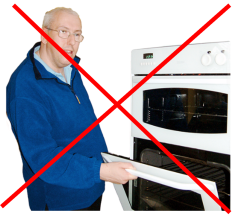
- Have support for their daily needs such as cooking
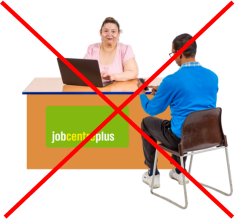
- Have support to find a job after they leave prison
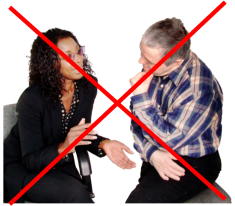
- Get support for their mental health problems

Mental health is about
- How you think
- How you feel

A mental health problem is when your feelings start to worry you.

Having the right supports helps people not break the law again.

Below are some worries you might have when you try to get support for your mental health.

We include some ideas for what you can do.

You might not understand the criminal justice system
This is what you can do.

Let the police or the court know how you want them to communicate with you.
Let them know if you do not understand.

Look for a justice advocate through the Justice Advocacy Service.

An advocate is someone who helps you to speak up and get the support you need.

For more information about advocacy go to https://www.idmhconnect.health/
about-advocacy/ER

A justice advocate supports and assists people who are involved in the criminal justice system.

A justice advocate who works at a Justice Advocacy Service is free.

They can organise a support person for you.

A support person or a legal advocate can support you to
- Know what to expect will happen
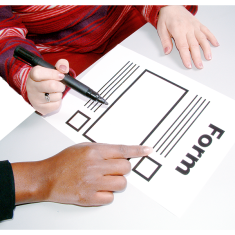
- Fill in forms

- Understand how you should be treated

- Stay calm
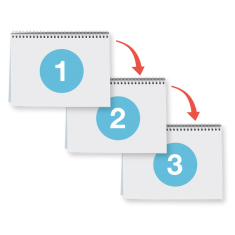
- Understand what has happened
- Understand what will happen next

You are worried that people will treat you in a different way because you have intellectual disability
This is what you can do.

Let the people working in the criminal justice system know you have intellectual disability.
This is so they can get you the supports you need.

You can also get a justice advocate through the Justice Advocacy Service.
The advocate can make sure that your needs are met.

You need support after leaving prison
This is what you can do.
Corrective Services NSW has case managers for people in prison.
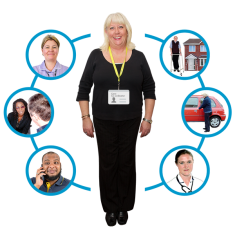
A case manager is a worker who helps you plan and organise
- Your care
- Other services you will get

Case managers can help make a plan for when you
- Are in prison
- Leave prison
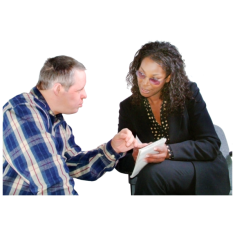
The people and organisations who support you after you leave prison can follow the plan.
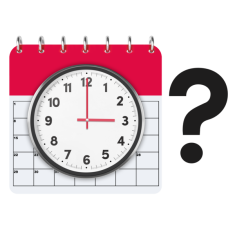
You can also ask someone you trust to help you to manage your appointments.
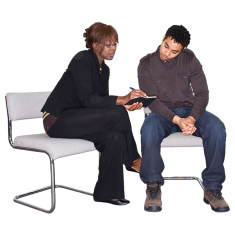
There are many people you might trust.
For more information about who you might trust go to https://www.idmhconnect.health/someone-trust
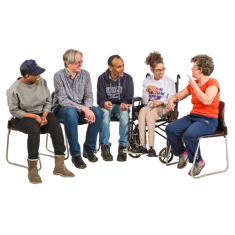
You can also find support at the Community Restorative Centre.
The Community Restorative Centre is a service that can help people who have left prison.
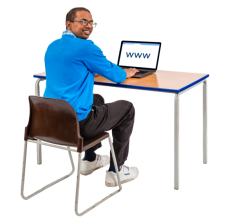
For more information about the Community Restorative Centre go to https://www.crcnsw.org.au/get-help/

Below is a list of services and supports to support people in contact with the criminal justice system.

The Justice Advocacy Service is a free advocacy service.
For more information about the service go to https://idrs.org.au/jas/

You can get an advocate or support person from the Justice Advocacy Service to support you.
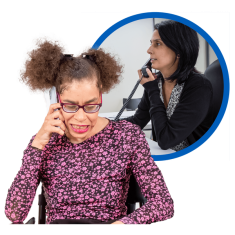
The Community Restorative Centre has a free telephone information and referral service.
Call them on (02) 9288 8700 between 9am and 5pm.

The Community Restorative Centre also has services and programs that support people who have left prison.
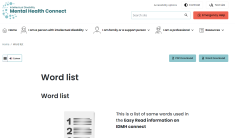
There are some tricky words on this Easy Read page.
For more information about these words go to